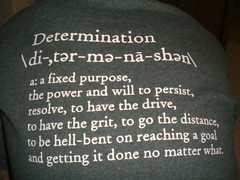Professor of Career Education at ACU, Jim Bright, suggests that we under-rate the worth of a well drafted resume (or CV – Curriculum Vitae). Despite the increasing practice of having applicants complete an online personality test as a technique to reduce cumbersome piles of applications, the resume is a key resource for choosing the candidates to interview. Here is a reblogged article from October 25, 2014
The resume influences our careers more than almost anything else, yet we typically neglect it. It can prise open the most tightly closed doors or shut them more effectively than an Australian immigration policy. It is one of the most fundamental elements in finding work. Yet we neglect it, and we choose to believe superstitions about it in preference to understanding its nature. This week I write about the much abused and under-estimated resume or curriculum vitae.
The resume is so underrated that 20 years ago when Jo Earl and myself set out to research how to compose a successful resume, we were told not to bother as the resume was passé and would soon be extinct. Perhaps those commentators were correct as there are probably only 10 million or so resumes in circulation in Australia (estimated from Linkedin having over five million resumes online and about one-third or four million of the working population of 12 million change jobs each year). It seems the resume is becoming extinct at the same rate that Miley Cyrus is acquiring good taste.
Despite its ubiquity, I sometimes despair that we continue to neglect this critically important document. The resume is correlated highly with the final decision to hire a candidate: recruiters’ ratings of resumes predicts the final hire decision as strongly as their ratings of a candidate’s interview performance. This is but one research finding that has emerged from the increasing evidence-base on how to write an effective resume.
Despite this, much of the advice peddled to hapless job hunters is an evidence-free zone based on opinion and hearsay. Good evidence comes from behavioural studies, where recruiters’ reactions to different resume features and content are carefully assessed in controlled studies, or it is revealed from the systematic analysis of large samples of resumes. For instance, in a sample of 999 candidate resumes on file with a recruiter we found that hobbies were irrelevant to job hire decisions.
When I searched for advice online about how to write an Australian resume the first three links were to articles that contained advice that is contrary to the best available evidence or was trivial and incomplete. There is a thriving industry in providing resume advice to job seekers but much of it appears to be based on nothing more than personal experience and hearsay. While professional experience is all well and good, we expect other advisors such as doctors, lawyers and accountants to have evidence to back up their advice – it is time we demand the same standards for resume advice. The resume is a critical document that deserves careful evidence-based attention. Our careers may depend upon it.
Jim Bright is Professor of Career Education and Development at ACU and a Partner at Bright and Associates. Email [email protected]. Follow @DrJimBright
Read more: http://www.smh.com.au/business/cvs-a-crucial-part-of-any-job-application-20141017-117hc2.html#ixzz3HK3DZKE8



